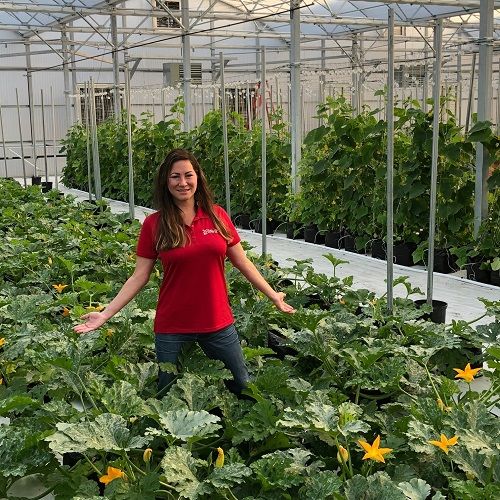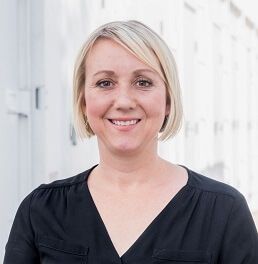Where Agriculture Meets Wellness: Q&A With Seed2Source Founder Jennifer Waxman
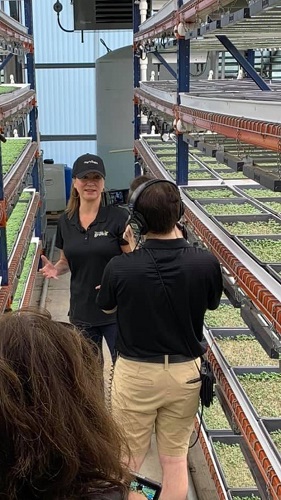 After successfully guiding The Villages Grown™ to its current position as a vertically integrated, 84-acre total footprint, controlled environment agriculture (CEA), year-round, produce growing operation in Central Florida, Jennifer Waxman is heading back to her roots. That is, she’s turning her focus back to Seed2Source, the firm she launched in 2005 driven by her “agriculture meets wellness” passion and vision.
After successfully guiding The Villages Grown™ to its current position as a vertically integrated, 84-acre total footprint, controlled environment agriculture (CEA), year-round, produce growing operation in Central Florida, Jennifer Waxman is heading back to her roots. That is, she’s turning her focus back to Seed2Source, the firm she launched in 2005 driven by her “agriculture meets wellness” passion and vision.
Indoor Ag-Con is thrilled to have Jennifer on our Advisory Board, as a speaker at the upcoming CEA Summit East in Virginia next week , and Indoor Ag-Con in Las Vegas in February 2023. We had the chance to catch up with this busy CEA industry leader to learn more about her vision and plans in this month’s Q&A
For the last 6 years, you’ve overseen the impressive growth and development of The Villages Grown. Why was the timing right to leave that post to focus on Seed2Source?
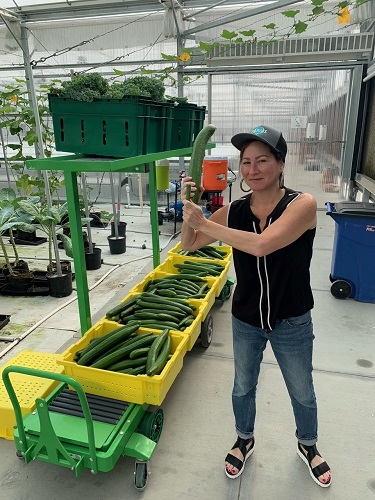 We were given the honor and trust to carry out our vision and model for The Villages Grown. This included the strategic direction, design, construction, and operation of a first-of-kind CEA in the South. We backed this with educational programming from both B2C and B2B. We built a community-based brand yet grew enough product for expansion throughout Florida. We worked with beautiful people in a beautiful community.
We were given the honor and trust to carry out our vision and model for The Villages Grown. This included the strategic direction, design, construction, and operation of a first-of-kind CEA in the South. We backed this with educational programming from both B2C and B2B. We built a community-based brand yet grew enough product for expansion throughout Florida. We worked with beautiful people in a beautiful community.
However, it is no secret that CEA is only scratching the surface in the US. We knew we wanted to be at the head of the ride with its growth. Several players in the CEA sector were showing intrigue and interest in our model. I believe this was rooted in our ability to build a strong brand, educate, all the while supporting other local farmers along the way.
I’ve learned a lot since entering the hydroponics sector in 2000. This is when I started to conceive this model of holistic wellness and was based on my global travels, thus observing the ‘Future of Food’. There is a lot to share from a rather long career in this sector. I have experienced successes, failures, and have observed overall industry needs and voids. This is the exciting part and I wanted back in!
Share more about Seed2Source, your Sustainable Ag Business Consulting Firm focusing on controlled environment agriculture
 Seed2Source launched in 2016 but was really an evolution of my first ‘Agriculture Meets Wellness’ firm which was launched in 2005. Seed2Source is a first-of-kind, Sustainable Agriculture & Wellness, consulting firm headquartered in Florida but serving the US (and beyond). The firm focuses on strategic CEA projects rooted in sustainable agricultural, food-as-medicine, and local food system models.
Seed2Source launched in 2016 but was really an evolution of my first ‘Agriculture Meets Wellness’ firm which was launched in 2005. Seed2Source is a first-of-kind, Sustainable Agriculture & Wellness, consulting firm headquartered in Florida but serving the US (and beyond). The firm focuses on strategic CEA projects rooted in sustainable agricultural, food-as-medicine, and local food system models.
Our CEA experience includes Vertical Farming, Controlled Greenhouse, Aeroponic and Hydroponic Methodologies, Strategy, Branding, Distribution, Education, Innovation, and Science. We are a one-stop-shop and are surrounded by the best and the brightest in all operational units required for true success. We bring in different consultants as the projects deem fit. This allows us to take on both small and large projects as the market dictates.
At the upcoming CEA Summit, you’ll be speaking on 2 panels, including one titled “Building The Future of CEA”. If there is one message you hope to get across on that panel discussion what is it?
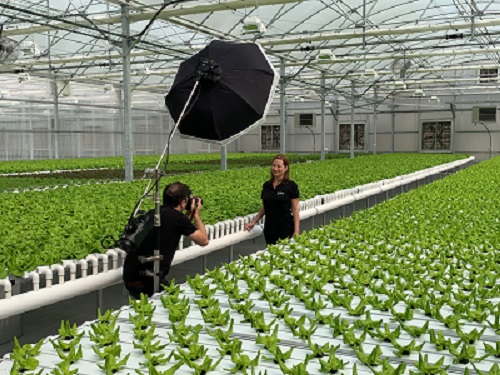 The CEA industry is still at its infancy and shall evolve with continuous iterations and innovations. Typically, when most people think of CEA, they only think of High-Tech, AI, Automation, etc. and forget about the State of Agriculture in general. I hope people start to realize that CEA is ‘part’ of a solution and not the ‘only’ solution. Also, I hope that people don’t forget about the actual agriculturists and horticulturists that are the true heroes in creating a sustainable, profitable, CEA operation. This seems to be lost with many of the current players in CEA.
The CEA industry is still at its infancy and shall evolve with continuous iterations and innovations. Typically, when most people think of CEA, they only think of High-Tech, AI, Automation, etc. and forget about the State of Agriculture in general. I hope people start to realize that CEA is ‘part’ of a solution and not the ‘only’ solution. Also, I hope that people don’t forget about the actual agriculturists and horticulturists that are the true heroes in creating a sustainable, profitable, CEA operation. This seems to be lost with many of the current players in CEA.
You’ll also be speaking at the 2023 edition of Indoor Ag-Con on a great session idea you brought to us, “Building A CEA Alliance: The Power of Grower Partnerships.” Can you share a little more about this idea?
As it stands, there is little-to-no diversity in US CEA. Everyone is clamoring for funding, market share, and innovations in technology. I believe they are missing a huge opportunity for collaborations, strategic partnerships, and supply chain solutions. We must work together not only for larger supply chain opportunities in both retail and wholesale, but to truly exchange best business practices and the like. We should also be collaborating to keep domestic supply in our own backyard and with prominence. There is enough business to be had for all!
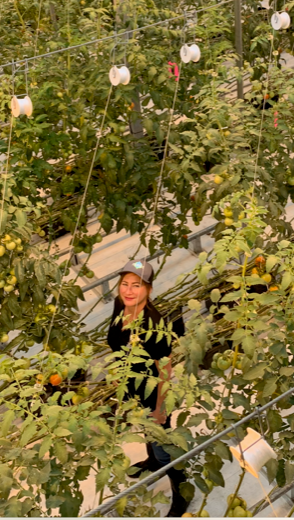 What’s next for you and the team at Seed2Source?
What’s next for you and the team at Seed2Source?
Our vertically integrated CEA Model, of which we pride ourselves on, was clearly not an overnight success. We are still on this journey. This will continue to be the core of our mission and vision. The Vision – ‘Intersecting Agriculture with Wellness as a Food-As-Medicine Approach’ — will continue to drive our passion and expansion.
We feel strongly that this is the model for success and ultimate operational sustainability. We are being courted by some amazing operations – both new and old players in the CEA space – which has been rewarding. We will continue to build our CEA and overall Domestic Farm Partnerships and Educational Programming.
Learn more about Jennifer and her team at www.seed2source.com
